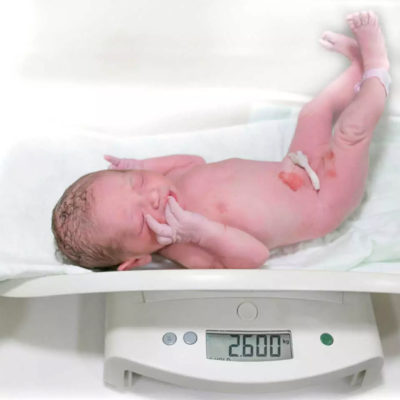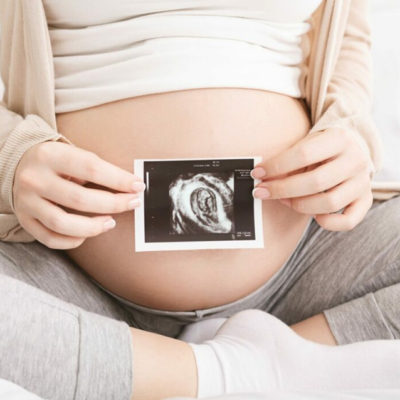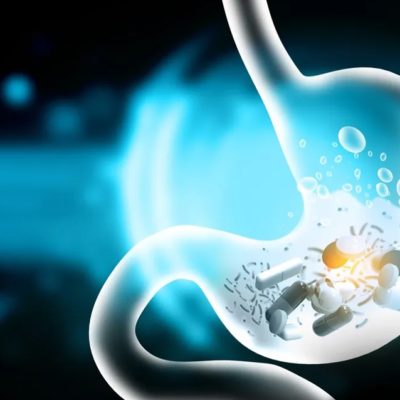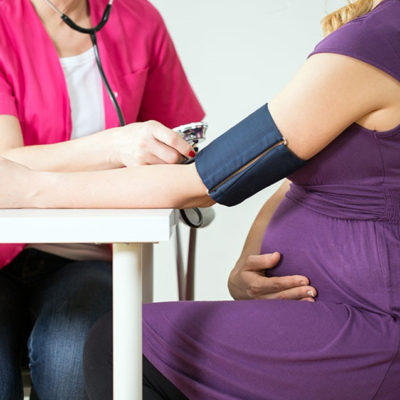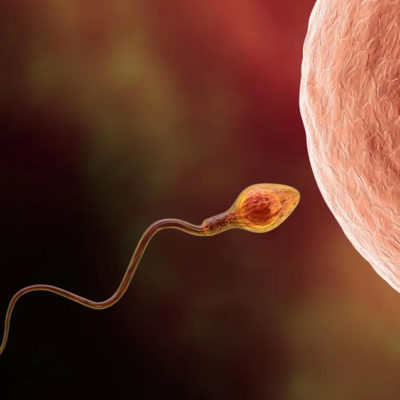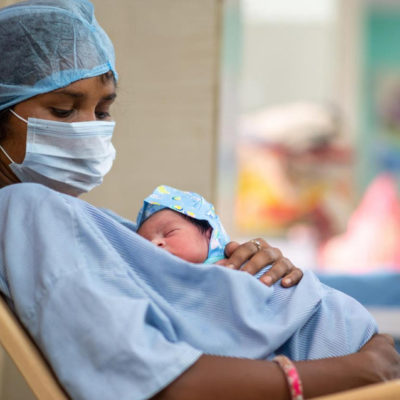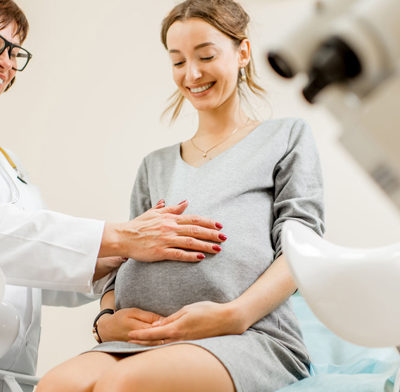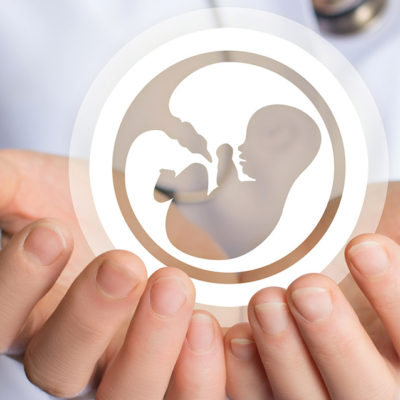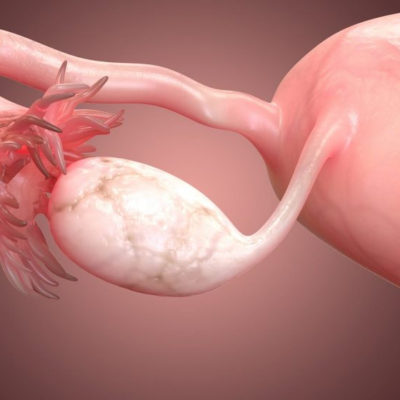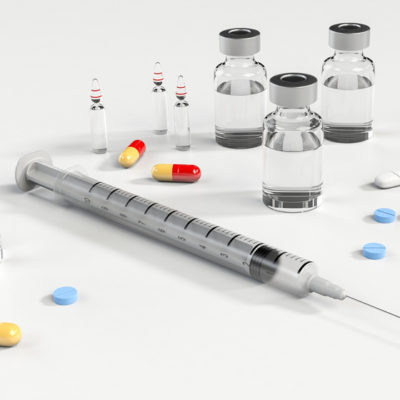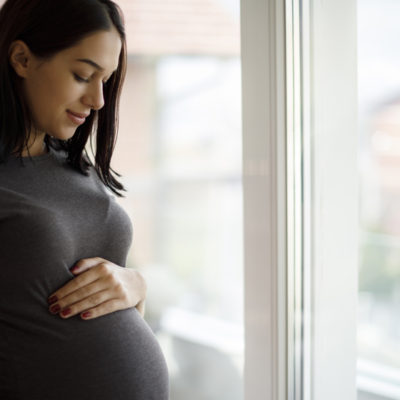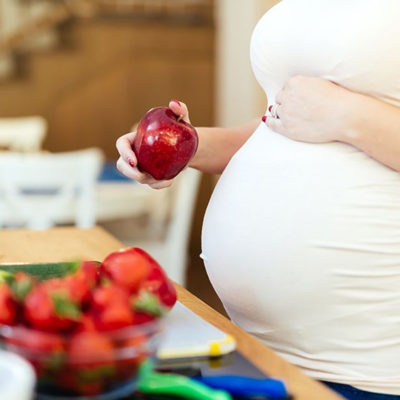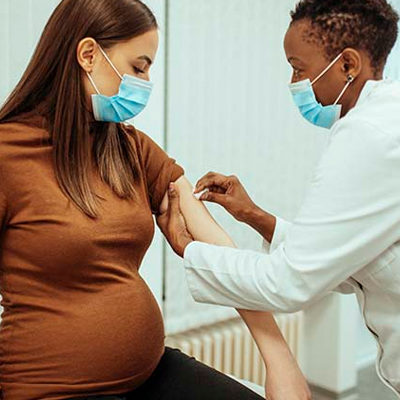The consequences of prenatal alcohol exposure (PAE) are reflected in the different diagnoses that emerge under the umbrella of fetal alcohol spectrum disorders. At one end of the spectrum, growth deficits and physical differences define fetal alcohol syndrome (FAS), but in most cases, irreversible brain damage leads to behavior and learning challenges even without a physical … [Read more...]
Fertility & Pregnancy

Prenatal Acetaminophen use Linked to Sleep, Attention Problems in Preschoolers
Acetaminophen use during pregnancy is associated with sleep and behavior problems consistent with attention deficit hyperactivity disorder (ADHD), according to a study by Penn State College of Medicine researchers. Acetaminophen is a common drug used to treat a variety of issues, including fever, infection, muscle pain, headache, migraine, colds and allergies. Traditionally, … [Read more...]
Antibiotics Given in Infancy May have Adverse Impact on Adult Gut Health.
Preterm and low birth weight babies are routinely given antibiotics to prevent, not just treat, infections, which they have a high risk of developing. A new study, published in The Journal of Physiology has found that early life exposure to antibiotics in neonatal mice has long-lasting effects on their microbiota, enteric nervous system, and gut function. This could mean that … [Read more...]
Problems Persist for Kids Exposed to Cannabis in the Womb
Children who were exposed to cannabis in the womb continue to show elevated rates of symptoms of psychopathology -- depression, anxiety and other psychiatric conditions -- even as, at ages 11 and 12, they head toward adolescence, according to research from the Department of Psychological & Brain Sciences' BRAIN Lab, led by Ryan Bogdan, associate professor in Arts & … [Read more...]
Body Posture Affects How Oral Drugs Absorbed by Stomach
A common, economic, and easy method of administering drugs is orally, by swallowing a pill or capsule. But oral administration is the most complex way for the human body to absorb an active pharmaceutical ingredient, because the bioavailability of the drug in the gastrointestinal tract depends on the medication's ingredients and the stomach's dynamic physiological … [Read more...]
Taking Vitamin D during Pregnancy Could Lower The Risk of Eczema in Babies
Taking Vitamin D supplements during pregnancy could substantially reduce the chances of babies up to a year old suffering from atopic eczema, according to a new study by University of Southampton researchers. The research, published in the British Journal of Dermatology, revealed that babies had a lower risk of developing atopic eczema in their first year if their mothers … [Read more...]
Air Pollution Linked to Adverse Outcomes in Pregnancy
A new study in mice by UCLA scientists reveals how exposure to traffic-related air pollutants causes cellular changes in the placenta that can lead to pregnancy complications and affect the health of both mother and offspring. The researchers found that the cellular changes caused by chronic exposure to air pollutants were related to immune activation by foreign substances … [Read more...]
Hypertensive Pregnancy Disorders Linked to Future Cardiac Events
Women who experienced complications related to developing high blood pressure, or hypertension, during pregnancy had a 63% increased risk for developing cardiovascular disease later in life, according to research funded by the National Heart, Lung, and Blood Institute (NHLBI), part of the National Institutes of Health. While hypertensive pregnancy complications previously … [Read more...]
Family Size May Influence Cognitive Functioning in Later Life
Until now fertility has not received much attention as a potential predictor of late-life cognition compared with other factors, such as education or occupation. The findings are published in the journal Demography. "Understanding the factors that contribute to optimal late-life cognition is essential for ensuring successful aging at the individual and societal levels -- … [Read more...]
Review of Pre-Eclampsia Care
Pre-eclampsia is a condition that affects up to 4% of women during pregnancy, and up to 8% of women during their lifetime. It includes high blood pressure (hypertension) and damage to a number of her body's organ systems, and remains one of the two main causes of death for pregnant and recently-pregnant women worldwide -- about 46,000 young women a year. Up to half a million … [Read more...]
Antibiotic and Antiretroviral Drug Effects on Breast Milk
Infants carry a vast assemblage of bacteria, viruses and fungi in their guts. Combined, these microbes make up a complex ecology known as the gut microbiome, which plays a major role in health and disease throughout life. The initial source of these billions of microbes is the mother's breast milk. In a new study, Efrem Lim and his colleagues use next-generation sequencing … [Read more...]
Permanent Birth Control Methods for Women Have up to Six Percent Failure Rates
Hysteroscopic sterilization, a nonincisional procedure, was found to be as effective as minimally invasive laparoscopic sterilization in preventing pregnancy, but both methods had higher than expected failure rates, according to a new study led by an investigator at Weill Cornell Medicine. The comparative study, published April 12 in Fertility and Sterility, found that both … [Read more...]
First get your heart in shape then get pregnant
This Valentine's Day, a new Northwestern Medicine study shines a spotlight on an important but often overlooked matter of the heart -- optimizing one's cardiovascular health before getting pregnant. More than one in two young women between the ages of 20 and 44 who gave birth in the United States in 2019 had poor heart health before becoming pregnant, the study found. Poor … [Read more...]
Vaccinated Women Pass COVID-19 Antibodies to Breastfeeding Babies, Study Finds
Women vaccinated against COVID-19 transfer SARS-CoV-2 antibodies to their breastfed infants, potentially giving their babies passive immunity against the coronavirus, according to University of Massachusetts Amherst research. The study, published in the journal Obstetrics & Gynecology, measured the immune response to the COVID-19 mRNA vaccine in both breast milk and the … [Read more...]
Infants with low-risk Deliveries should not Need Antibiotics at Birth, Study Suggests
Infants born via uncomplicated cesarean delivery, without labor or membrane rupture before delivery and no concern for infection, should not need antibiotics at birth, according to a study by researchers at Children's Hospital of Philadelphia (CHOP). The findings, which were published today in Pediatrics, could help clinicians tailor the use of early antibiotics in newborns. … [Read more...]
COVID-19 linked to Complications During Pregnancy, Study Finds
Women who have Covid-19 towards the end of their pregnancy are vulnerable to birth-related complications. They are more likely to have complications than those who get Covid-19 in the earlier stages of pregnancy or who haven't had Covid-19 at all. The findings show that preterm births, stillbirths and newborn deaths are more common among women who have the virus 28 … [Read more...]
Normal 6-Month Outcomes in Babies of Women With COVID-19 During Pregnancy
Babies born to women who had COVID-19 during pregnancy showed reassuring patterns of growth and development at 6-month follow-up, according to a study from Ann & Robert H. Lurie Children's Hospital of Chicago and Northwestern Medicine in partnership with Erie Family Health Center, a Federally Qualified Health Center (FQHC) that serves a diverse and low-income patient … [Read more...]
Breast milk of marijuana users does not hurt short-term health of early premature infants
Legalization of marijuana has been associated with increased use in women of childbearing age. Since tetrahydrocannabinol (THC), one of the active ingredients in marijuana, passes through breast milk, many neonatal intensive care units (NICUs) restrict the use of breast milk from THC-positive women because the effects on early preterm infants are unknown. However, science has … [Read more...]
Scientists map brain circuit that drives activity in fertile females
Scientists have known for a century that female animals become more active just as they are about to ovulate, a behavior that evolved to enhance their chances of mating when they are fertile. Now, a team at UC San Francisco has identified the specific neurons and signaling pathway that make sexually receptive females of many species run around at this critical time. The … [Read more...]
Is Your Child a Fussy Eater?
Whether it's an exclusive appetite for 'white' foods or an all-out refusal on veggies, when you have a fussy eater on your hands, mealtime can be more than a challenge. While picky eating is all part of the norm for developing toddlers, when it extends into school years, it takes a toll on all involved, children and parents alike. Now, new research from USC, the … [Read more...]
New Evidence that Fetal Membranes can Repair Themselves After Injury
Scientists from Queen Mary University of London and UCL have shown that fetal membranes are able to heal after injury in a new study published today in Scientific Reports. The integrity of the fetal membranes that surround the baby in the womb during pregnancy is vital for normal development. But fetal membranes can become damaged as a result of infection, bleeding, or after … [Read more...]
Obstructive Sleep Apnea is Common in Kids and may Impact Blood Pressure, Heart Health
Obstructive sleep apnea, a form of sleep-disordered breathing, is common in children and adolescents and may be associated with elevated blood pressure and changes in heart structure, according to a new scientific statement from the American Heart Association, published today in the Journal of the American Heart Association. A scientific statement is an expert analysis of … [Read more...]
Children Lost a Primary or Secondary Caregiver due to the COVID-19 Pandemic
More than 1.5 million children around the world are estimated to have lost at least one parent, custodial grandparent, or grandparent who lived with them due to death related to COVID-19 during the first 14 months of the pandemic, according to a study published today in The Lancet. The study highlights orphanhood as an urgent and overlooked consequence of the pandemic and … [Read more...]
World-First Study Uses Artificial Intelligence to Map the Risks of Ovarian Cancer in Women
Internationally-renowned nutritional epidemiologist Professor Elina Hypponen and a team from UniSA’s Australian Centre for Precision Health have been awarded $1.2 million by the Federal Government to map the genetic and physical risks of ovarian cancer, based on the health records of 273,000 women from the UK Biobank database. A machine learning model, which automatically … [Read more...]
Long-term Exposure to Air Pollutants Increases the Risk of Dysmenorrhea in Women
Dysmenorrhea can be due to hormonal imbalances or to underlying gynecological conditions such as endometriosis, pelvic inflammatory disease, ectopic pregnancy, or tumors in the pelvic cavity. Symptoms are often life-long: they include cramps and pain in the lower abdomen, pain in the lower back and legs, nausea and vomiting, diarrhea, fainting, weakness, fatigue, and headaches. … [Read more...]
No Need to Cease Breastfeeding Following COVID-19 Vaccination
First insights into breastfeeding post-vaccination for COVID-19With the recent large-scale implementation of messenger RNA (mRNA) vaccines against COVID-19, clinical research has started to understand the dynamics of both the virus and the vaccine across demographic groups. Of particular importance are pregnant and breastfeeding mothers, from which clinical trials have limited … [Read more...]
Fertility Drugs do Not Increase Breast Cancer Risk, Study Finds
Drugs routinely used during fertility treatments to release eggs do not increase the risk of developing breast cancer, new research has shown. Researchers from King's College London, in partnership with King's Fertility, analysed studies involving 1.8 million women undergoing fertility treatments. These women were followed up in studies for an average period of 27 years and … [Read more...]
Air Pollution During Pregnancy May Affect Growth of Newborn Babies
According to studies in recent years, air pollution affects the thyroid. Thyroid hormones are essential for regulating fetal growth and metabolism, and play an important role in neurological development. Thyroxine (T4) is the main thyroid hormone that is circulating and the thyroid-stimulating hormone is TSH. At 48 hours newborn babies undergo a heel prick test in which … [Read more...]
Healthy Diet Before, During Pregnancy Linked to Lower Complications
A healthy diet around the time of conception through the second trimester may reduce the risk of several common pregnancy complications, suggests a study by researchers at the National Institutes of Health. Expectant women in the study who scored high on any of three measures of healthy eating had lower risks for gestational diabetes, pregnancy-related blood pressure disorders … [Read more...]
COVID-19 Vaccine Does not Damage the Placenta in Pregnancy
A new Northwestern Medicine study of placentas from patients who received the COVID-19 vaccine during pregnancy found no evidence of injury, adding to the growing literature that COVID-19 vaccines are safe in pregnancy. "The placenta is like the black box in an airplane. If something goes wrong with a pregnancy, we usually see changes in the placenta that can help us figure … [Read more...]
- « Previous Page
- 1
- 2
- 3
- 4
- …
- 41
- Next Page »


